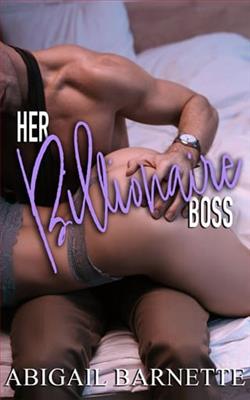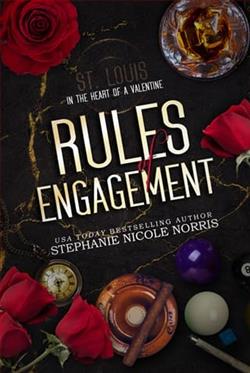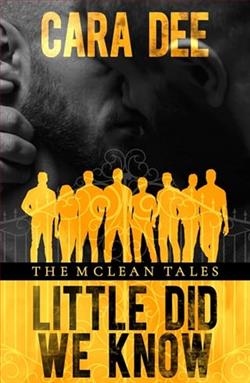Page 8 of Broken Roads
"You know," Ruthie suddenly says, turning to me. "You should see the place before it gets dark. Bradford, I'm going to give Hailey the grand tour."
Bradford nods his approval. "Good idea. Dinner at six?"
"On the dot," Ruthie confirms, setting her empty mug on the tray. "Come on, honey."
I stand, placing my half-empty mug beside hers. "Thank you for the coffee, Bradford. And for having me here."
"Thank me by fixing our books," he says with a wink. "And don't let my son's grumbling scare you off. His bark's worse than his bite."
The same thing Ruthie said upstairs. They believe it, clearly. But the memory of Bradley's cold eyes, the rigid set of his shoulders as he stood in my doorway, I'm not so sure. Some dogs don't need to bark to let you know exactly how unwelcome you are.
Still, as I follow Ruthie toward the back door, there's a lightness in my step that wasn't there before. Bradford's welcome feels genuine, his resemblance to his son a promise that perhaps Bradley isn't as impenetrable as he seems.
I'm still learning which thoughts to trust.
The Montana air hits me like a physical thing when we step outside—sharp, clean, and so damn vast it makes my lungs ache. Chicago air is a thing you endure, not something you notice, unless it's particularly foul or freezing. This is different. This feels like breathing for the first time after being underwater. I follow Ruthie down the porch steps, squinting against the late afternoon sun that bathes everything in golden light.
"Watch your step there," Ruthie warns as my ankle wobbles on the uneven ground. "Those city boots aren't made for ranch walking."
She's right. My leather ankle boots—practical for Chicago sidewalks and office carpeting—sink into the soft earth, the heels catching on every rut and stone. I stumble again, grabbing Ruthie's surprisingly sturdy arm for balance.
"Sorry," I mutter, embarrassment heating my cheeks. "Not exactly dressed for the occasion."
Ruthie pats my hand. "We'll get you some proper boots tomorrow. Can't have our financial wizard breaking an ankle before she's saved us."
The pressure of expectation settles on my shoulders. Saved. As if I'm some kind of miracle worker rather than a recovering alcoholic with a resume gap I can only pray Bradford doesn't look too closely at.
We continue past the stables and out the back, where Ruthie points out paddocks, the riding ring, a small round pen where they train young horses. Everything is well-maintained but shows signs of age—faded paint, weathered wood, patches where repairs have been made over the years.
"The guest cabins are over this way," Ruthie says, leading me down a worn path that branches east from the stables. "Eight in total, plus the main lodge where guests take their meals. We can sleep up to twenty-four when we're at full capacity."
The cabins are charming in their rustic simplicity—small wooden structures with covered porches, each with a view of either the mountains or the sprawling pastures. They look like something from a vacation brochure, promising an authentic Western experience for city folks willing to pay for it.
"Are they full often?" I ask.
Ruthie's expression falters slightly. "Used to be. Last few years have been leaner. That's part of why you're here."
We walk past a large building that Ruthie identifies as the guest dining lodge, then circle back toward the main house along a different path. My boots are caked with dust now, and my calves ache from the uneven terrain. Just as I'm wondering how much more ground we have to cover, Ruthie stops in front of a small outbuilding I hadn't noticed before.
"And this," she announces with a flourish. "Is all yours."
The building is modest. A single-story structure with a small covered porch and a fresh coat of green paint that doesn't quite match the trim. Ruthie produces a key from her apron pocket and unlocks the door before pushing it open with a dramatic gesture.
"It's not much," she says. "But it's got a view."
She's not wrong. The interior is simple bordering on sparse. A secondhand desk positioned beneath a wide window that frames the pastures and distant mountains, a filing cabinet that's seenbetter days, two mismatched chairs, and empty bookshelves lining one wall.
"This was originally the ranch office," Ruthie explains. "Back when Bradford ran things. Then he handed the reins over to Bradley and moved everything to a room in the main house. It's been storage for years, but we cleared it out for you."
I move to the desk, running my fingers along its scarred surface. How many Walker men have sat here, calculating profit margins, planning breeding programs, worrying over drought years and market prices? Now it's mine. The thought is both terrifying and strangely exhilarating.
"Thank you." I mean it. "It's perfect.”
Suddenly, the door swings open behind us, and I turn to find a man filling the frame. Tall, lean, with sandy brown hair peeking out from beneath a backward baseball cap. Unlike Bradley's severe intensity, this man's entire being radiates easy charm, from his crooked smile to the relaxed set of his broad shoulders. Green eyes crinkle at the corners as they sweep over me with undisguised interest.
"Well, well," he drawls, stepping into the office. "You must be the city girl."
"Sawyer Reid," Ruthie introduces him with an eye roll that suggests she's well acquainted with his flirtatious nature. "One of our ranch hands. Sawyer, this is Hailey Monroe, our new financial consultant."















